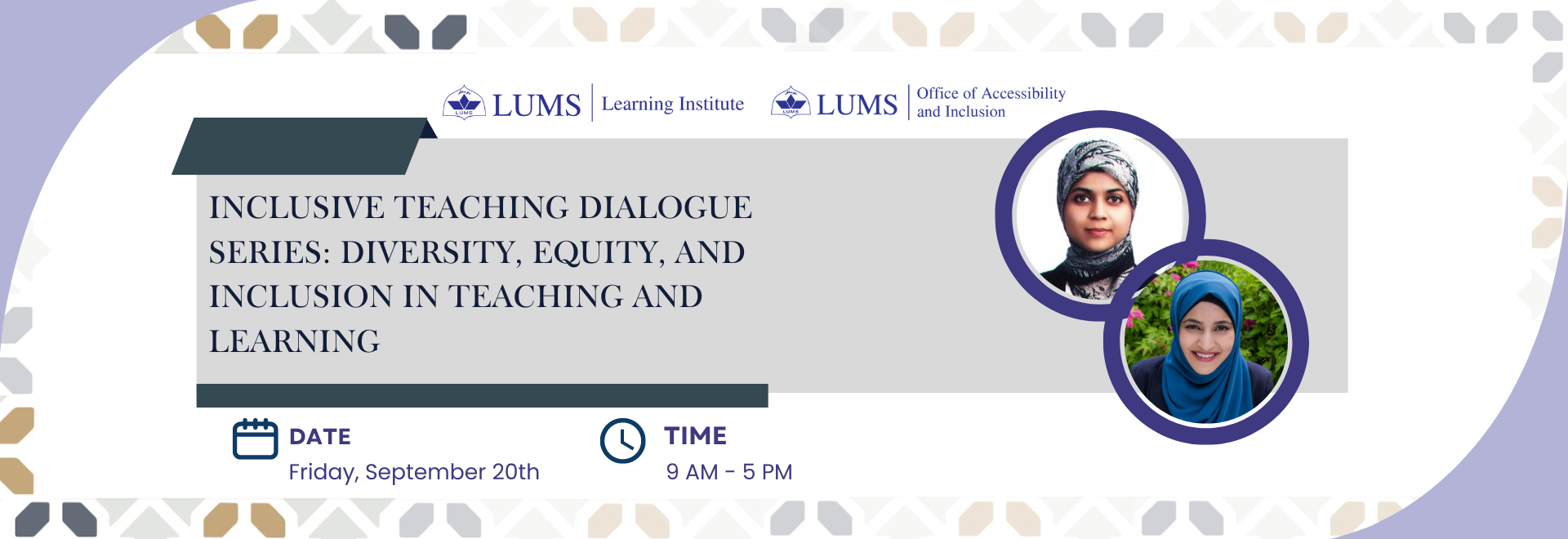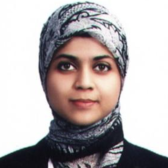Inclusive Teaching Dialogues: Bridging the Socioeconomic Divide - Fostering Resilience and Social Cohesion in Diverse Higher Education Classrooms

Location: VC Faculty Lounge, 1st Floor, Main Entrance, Academic Block, LUMS
Dates: September 20th, 2024
Time: 9:30 am - 5 pm
Workshop description
This workshop will empower faculty to create inclusive and equitable learning environments that foster resilience and social cohesion among students from diverse socioeconomic backgrounds. Participants will delve into the multifaceted impact of SES on student experiences and explore strategies to address specific challenges related to educational background, financial pressure, social exclusion, language barriers, and cultural context. Through interactive discussions and practical tools, faculty will gain the skills to support students' academic success and well-being while building a sense of community within the classroom.
Upon completing this workshop, participants will be able to:
Analyze the multifaceted impact of socioeconomic status (SES) on students' educational experiences, well-being, and success in higher education.
Implement inclusive teaching practices and strategies that address the specific challenges faced by students from diverse socioeconomic backgrounds, including disparities in educational access, financial pressures, social exclusion, language barriers, and cultural adjustment.
Foster a supportive and equitable classroom climate where all students feel valued, respected, and empowered to achieve their academic and personal goals.
Facilitate meaningful dialogue and collaborative learning activities that promote social cohesion, empathy, and understanding among students from diverse backgrounds.
Advanced Preparation
None
Time Commitment
It is a one-day long workshop
Workshop delivery
The workshop includes interactive activities, mini lectures, and individual time for reflection and work. Participants should bring at least one course outline for which they would like to develop innovative assessment practices.
Registration
To register for the workshop, please use the button below.
Cancellations
If you need to cancel your participation in this workshop, please email at lli@lums.edu.pk as soon as possible as there are people on the waitlist who wish to attend the session.




